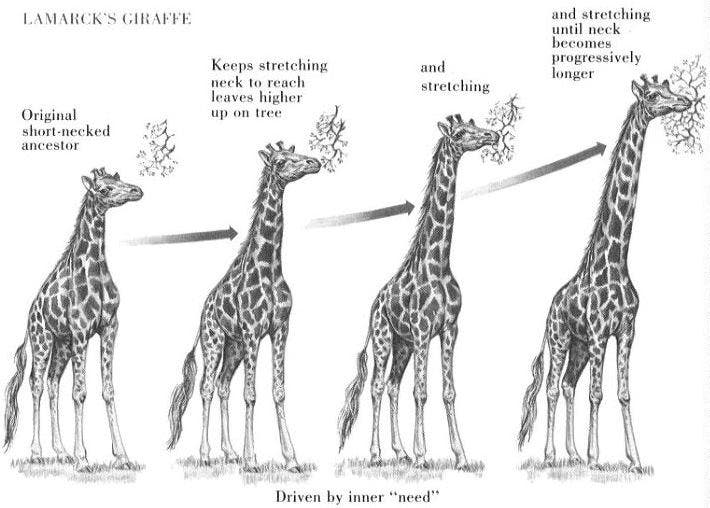Introduction
In the complex landscape of decision-making, understanding the mental models that influence our choices is essential. One such model that plays a significant role in our thought processes is “Evolution through Natural Selection.” This mental model is based on the principles of biological evolution and encompasses the idea that traits or behaviors that lead to survival and reproductive success are more likely to be passed on to future generations. This blog post aims to provide a comprehensive exploration of the Evolution through Natural Selection mental model, its relevance in decision-making, examples of its occurrence in various contexts, biases that contribute to it, strategies to identify and overcome it, and the implications of awareness.
Defining Evolution through Natural Selection and its Relevance in Decision-Making
Evolution through Natural Selection is a mental model rooted in the principles of Darwinian evolution. It posits that in a given population, individuals with advantageous traits or behaviors are more likely to survive, reproduce, and pass on these traits to future generations. Applied to decision-making, this mental model suggests that the choices and actions that lead to positive outcomes are more likely to be reinforced and repeated.
This mental model is anchored in human psychology due to our natural inclination for learning and adaptation. Throughout our evolutionary history, the ability to make decisions that enhance survival and reproductive success has been crucial. Consequently, our brains have developed mechanisms that reward successful choices, encouraging us to adopt strategies and behaviors that are evolutionarily advantageous.
Examples of Evolution through Natural Selection in Various Contexts
Personal Life Decisions:
Consider an individual faced with a career change. If they have previously excelled in a specific field and received recognition, they may be more inclined to continue down that path due to the positive reinforcement received. Despite potential opportunities in other fields, the individual might adhere to the familiar domain, inadvertently limiting their personal growth and exploration of alternative paths.
Business Scenarios:
In the business world, companies often make decisions based on past successes and market feedback. For instance, if a particular product or service has proven profitable, there is a tendency to continue investing resources in its development and marketing. While this strategy can be effective in the short term, it may blind businesses to emerging trends or changing customer preferences, hindering their long-term viability and adaptability.
Public Policy-Making:
The Evolution through Natural Selection mental model can also influence public policy decisions. Policymakers may be hesitant to implement significant changes to existing policies, even when evidence suggests alternative approaches could be more effective. The fear of potential negative outcomes and resistance to change can result in maintaining the status quo, preventing the evolution of policies to better address societal needs.
Mental Biases and Psychological Underpinnings of Evolution through Natural Selection
Several cognitive biases contribute to the occurrence of Evolution through Natural Selection in decision-making. The status quo bias, rooted in the preference for maintaining existing conditions, can reinforce the tendency to stick with familiar options instead of exploring new possibilities. Similarly, the confirmation bias can lead individuals to seek information that validates their current choices and disregard evidence that challenges their beliefs or strategies.
Another psychological underpinning is our aversion to loss. Loss aversion bias causes individuals to overvalue the potential losses associated with new decisions, leading them to stick to familiar paths even if objectively better alternatives exist. This bias, combined with the fear of failure, can restrict individuals from taking risks and embracing change, hindering their personal growth and adaptability.
Identifying and Overcoming Evolution through Natural Selection
To overcome the limitations of Evolution through Natural Selection, individuals can employ several strategies:
Embrace a Growth Mindset: Adopting a growth mindset allows individuals to view challenges as opportunities for learning and growth. By recognizing that decisions and actions can be adjusted and refined, individuals become more open to exploring new options and adapting their strategies as circumstances change.
Seek Diverse Perspectives: Actively seek out alternative viewpoints and opinions. Engage in dialogue with individuals who hold different perspectives, as this broadens your understanding of the options available. Encourage critical thinking and constructive debate to challenge and refine your decisions.
Conduct Objective Analysis: When making decisions, consciously gather and evaluate relevant data and evidence. Be aware of your own biases and strive for objectivity. Consider the long-term implications and potential risks of sticking to the familiar versus exploring new possibilities.
Conclusion
The Evolution through Natural Selection mental model, deeply ingrained in human psychology, significantly influences our decision-making processes. Recognizing its prevalence and the biases that contribute to it is crucial for making informed choices. By embracing a growth mindset, seeking diverse perspectives, and conducting objective analysis, individuals can navigate beyond the limitations of Evolution through Natural Selection. Awareness of this mental model and active avoidance of its potential pitfalls empower individuals to make more objective decisions that align with their best interests and promote personal growth and adaptability.
